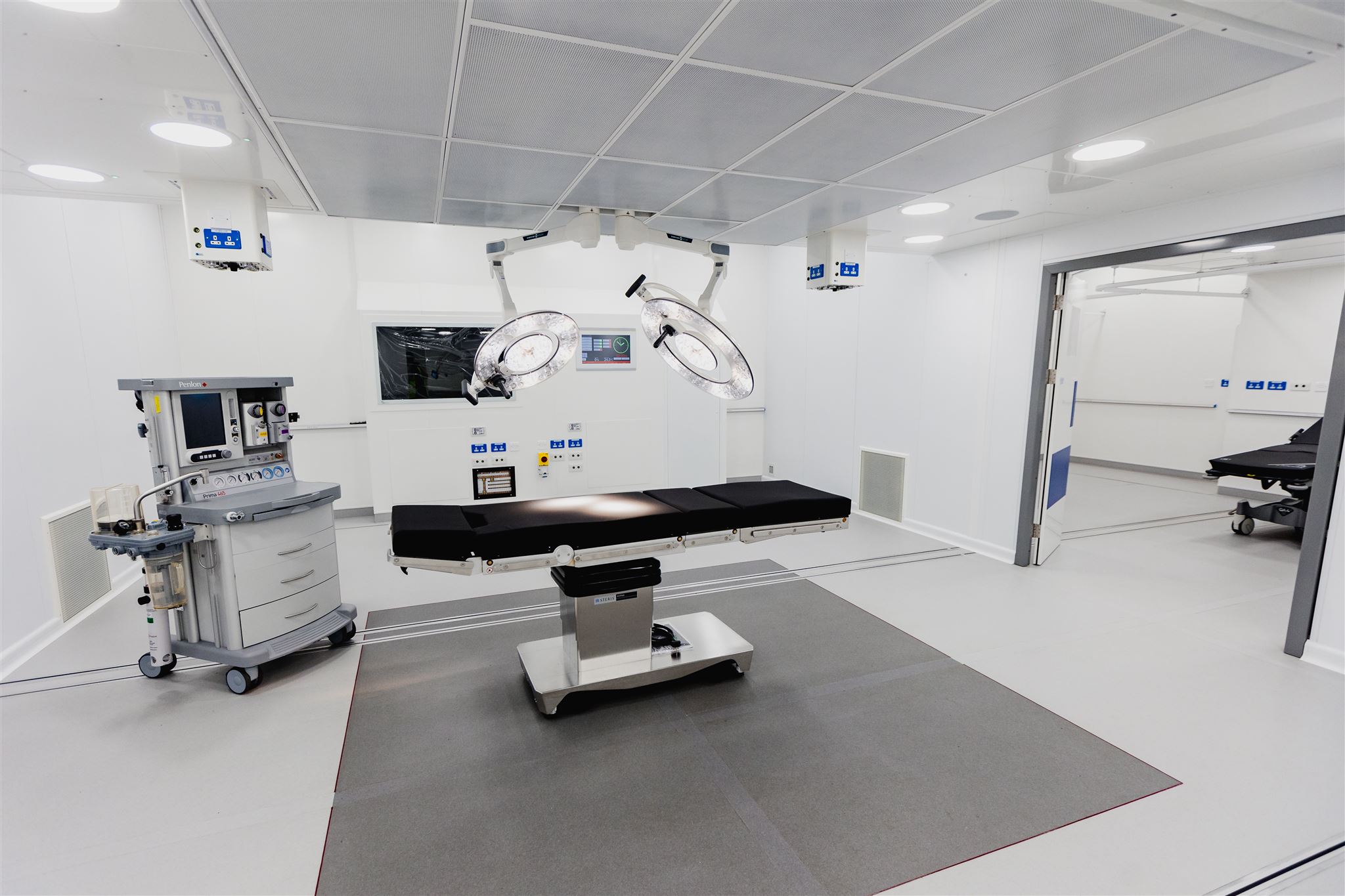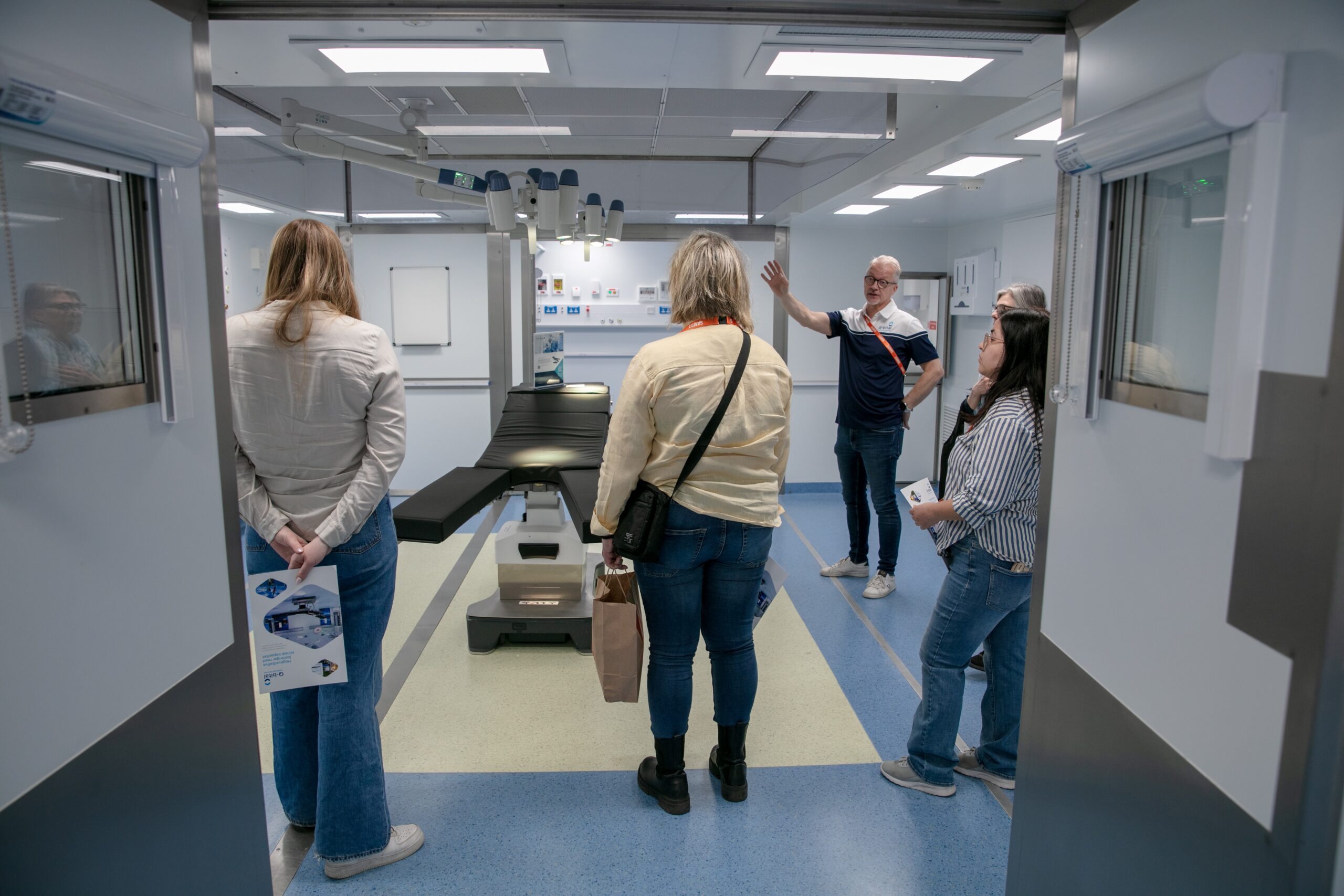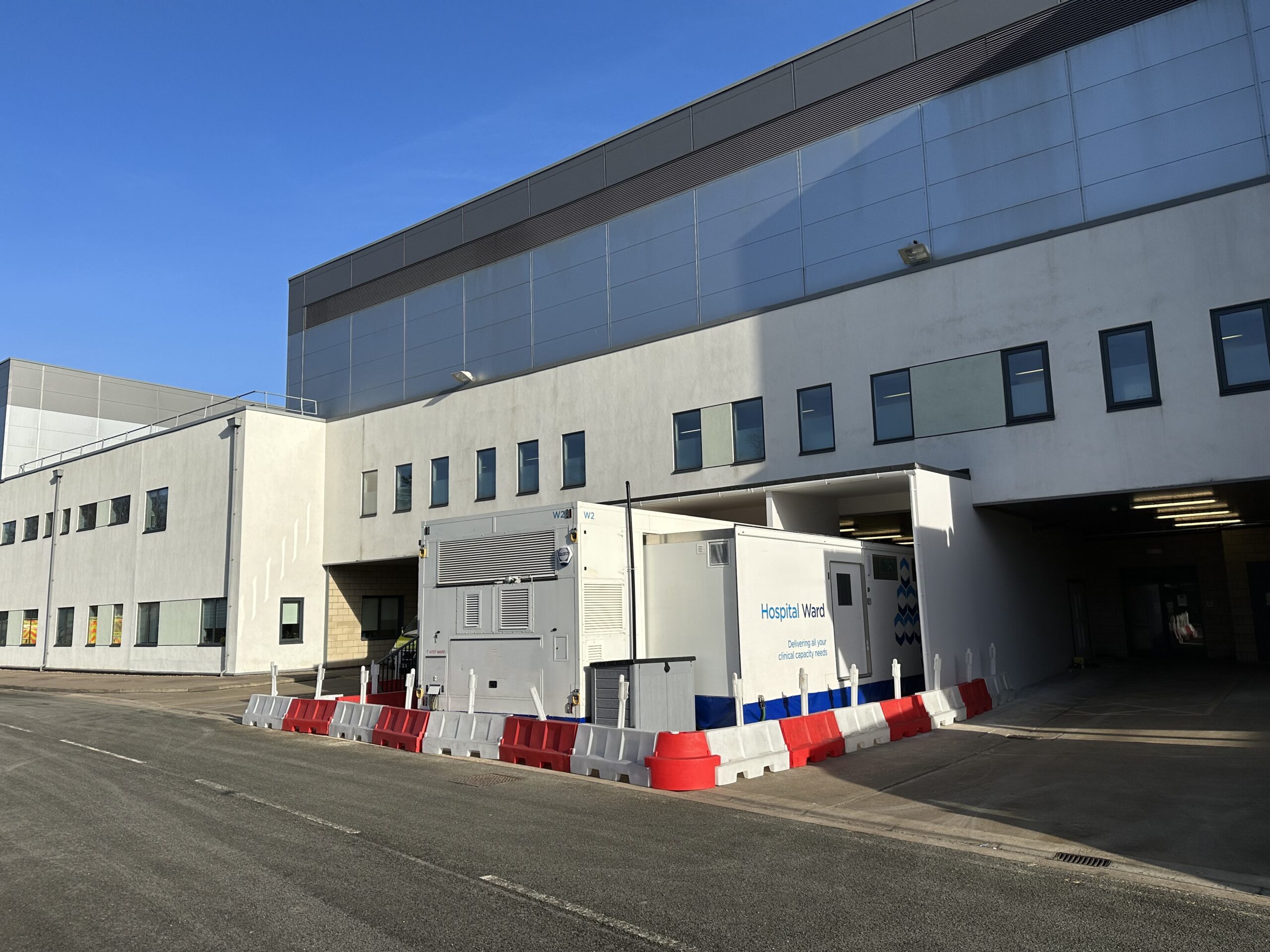Angesichts der anhaltenden Besorgnis über die steigenden Wartelisten für Wahlbehandlungen und die Frage, wie das Gesundheitswesen damit zurechtkommt, ist es wichtig, sich vor Augen zu führen, dass die Gesundheitsorganisationen und die ihnen angehörenden Menschen derzeit enorm viel leisten und dass diese Bemühungen einen großen Unterschied machen.
Seit Beginn der Pandemie haben die Mitarbeiter unermüdlich daran gearbeitet, das Leben der Patienten zu verbessern. Ihre Bemühungen haben es ermöglicht, dass der Großteil der planmäßigen Behandlungen während der gesamten Pandemie fortgesetzt werden konnte.
Obwohl die Zahl der Menschen, die auf bestimmte Behandlungen warten, in einigen Gegenden nach wie vor hoch ist, wären die Wartezeiten für Patienten ohne die Bemühungen der Krankenhäuser und Regierungen, die entschlossene Maßnahmen zur Aufrechterhaltung der wesentlichen Wahlversorgung ergriffen, noch länger gewesen. Indem sie die Nutzung sowohl der Innen- als auch der Außenflächen sehr schnell anpassten, um Störungen der nicht dringenden Versorgung während der Pandemie zu minimieren, haben sie dazu beigetragen, eine noch größere Krise zu verhindern.
Insbesondere das Engagement und die außerordentliche Belastbarkeit des klinischen Personals, das während der gesamten Pandemie unter schwierigsten Bedingungen arbeitet, um die lebenswichtige Patientenversorgung zu gewährleisten, verdienen mehr als nur eine beiläufige Erwähnung.
Für Q-bital ist es eine Ehre, mit zahlreichen Gesundheitsbehörden und Krankenhäusern zusammengearbeitet zu haben, die positive Maßnahmen ergriffen haben, um die Fortsetzung von geplanten chirurgischen Eingriffen und Diagnoseverfahren trotz knapper Ressourcen und der Notwendigkeit, Covid-19-Patienten im Krankenhaus unterzubringen, so weit wie möglich sicherzustellen.
Unser mobile und modulare Gesundheitseinrichtungen wurden während der gesamten Pandemie in großem Umfang eingesetzt, um den Patientenfluss zu verbessern, ihnen Sicherheit zu geben, die Kapazität zu erhöhen und als flexible Ressource, die schnell angepasst werden kann, um als integraler Bestandteil eines Krankenhauses eine breite Palette von Verfahren durchzuführen.
Die Fähigkeit der Krankenhäuser, sich schnell anzupassen – in vielen Fällen durch den Einsatz einer flexiblen Gesundheitsinfrastruktur –, hält den Anstieg der Wartelisten so weit wie möglich in Schach.
Eine flexible Ressource
In einem Krankenhaus änderte sich aufgrund der Covid-19-Pandemie die Nutzung eines maßgeschneiderten ophthalmologischen Zentrums von Q-bital, das normalerweise für Kataraktoperationen verwendet wird.
Als im April 2020 sämtliche Arbeiten an der Abteilung aufgrund der Absage geplanter Operationen eingestellt wurden, erkannte das Krankenhaus, dass sich der Hub, der eine in sich geschlossene Umgebung an einem vom Hauptkrankenhausgelände entfernten Standort bot, ideal für Notoperationen und kleinere plastische Operationen eignete.
Darüber hinaus wurde der Patientenfluss insgesamt verbessert, da die Patienten über einen separaten Weg zum Hauptaufnahmebereich des Krankenhauses direkt in die Zentrale untersucht und eingeliefert werden konnten.
Ein Sprecher des Krankenhauses sagte damals:
„Die Einheit als eigenständige Einrichtung getrennt vom Krankenhaus zu haben, war in der Anfangsphase von Covid-19 ein großer Vorteil. Das Zentrum war schon vor der Pandemie extrem ausgelastet und blieb auch während der gesamten Pandemie ausgelastet und äußerst effektiv. Es unterstützte uns dabei, die Operationen außerhalb der Hauptkrankenhausräume fortzusetzen.
„Kalte Standorte“ bieten Sicherheit und Geborgenheit
Während der Pandemie wurden an vielen Standorten auch neue, eigenständige, sogenannte „kalte“ Standorte für Operationen – oder zur sicheren Durchführung von Diagnoseverfahren wie Endoskopie – mit modularen oder mobilen Einrichtungen eingerichtet. Diese Art von Einrichtung bietet nicht nur einen sicheren, separaten Standort für die Durchführung von Operationen in einer Umgebung ohne Covid, sondern kann auch dazu beitragen, den Patienten die Gewissheit zu geben, dass der Besuch sicher ist.
Durch die Kombination eines Operationssaals und einer Krankenstation kann ein Besuchskrankenhaus geschaffen werden, das eine vollständige klinische Umgebung mit einem Anästhesieraum, Wasch- und Aufwachräumen, sauberen und schmutzigen Versorgungsräumen, einer Rezeption/Schwesternstation, einem Wartezimmer, einer Krankenstation und einer Toilette bietet. Mobile und modulare Stationen können auch verwendet werden, um sehr schnell zusätzliche Bettenplätze bereitzustellen.
Dies war im Kettering General Hospital in Großbritannien der Fall, das zu Beginn der Pandemie eine modulare Station in Auftrag gab, um eine Covid-freie Zone zu schaffen.
Eine Bettenmodellierung zu Beginn der Pandemie ergab, dass das Krankenhaus möglicherweise zusätzliche Betten benötigt, um die Krise wirksam zu bewältigen. Der Trust beschloss, eine modulare Station in Auftrag zu geben, um eine weitere „grüne“ Zone abseits der Covid-19-Gebiete zu schaffen, in der Risikopatienten sicher versorgt werden können.
Der Plan ermöglichte es dem Trust, für die zweite Welle zusätzliche Covid-19-Kapazitäten im Krankenhaus vorzubehalten, was von Anfang an die Absicht war.
Ein Sprecher des Krankenhauses sagte: „Der neue Block mit der 18-Betten-Station wurde als Notfallmaßnahme eingerichtet, um die sichere Behandlung und Versorgung von Nicht-Covid-Patienten zu unterstützen, während wir uns im Krankenhaus weiterhin um Covid-19-Patienten kümmern.
„In dieser kritischen Zeit haben wir über die zusätzlichen Bettenkapazitäten sehr viel gewonnen. Und die Tatsache, dass die Betten nicht in der Nähe des Krankenhaushauptgebäudes liegen, beruhigt die Patienten, die sich vielleicht Sorgen über die Risiken eines Krankenhausaufenthalts gemacht haben.“
Die Module wurden außerhalb des Standorts von Q-bital Healthcare Solutions gebaut und die eigenständige Stationseinrichtung wurde trotz der Einschränkungen durch das damals geltende Lockdown-Protokoll innerhalb von nur fünf Wochen fertiggestellt.
Einsatz und Engagement
Covid-19 hat die Gesundheitssysteme weltweit vor große Herausforderungen gestellt, und Q-bital ist stolz darauf, die Bemühungen des Gesundheitspersonals unterstützen zu können, die notwendige Patientenversorgung auf jede erdenkliche Weise sicherzustellen. Das Krankenhauspersonal hat außergewöhnliche Belastbarkeit bewiesen, indem es sich sehr kurzfristig an neue Bedingungen angepasst hat und die Patienten weiterhin in den Mittelpunkt stellt.
Schon vor Covid-19 waren die Teams von Q-bital für ihre Anpassungsfähigkeit, ihre lösungsorientierten Ansätze und ihre „Das schaffe ich“-Einstellung bekannt, und während der gesamten Krise haben sie wiederholt gezeigt, dass ihr Ruf, alles zu tun, um die Kunden zu unterstützen, gerechtfertigt ist.
Einige unserer Teammitglieder arbeiten für längere Zeit im Ausland. Zusätzlich zu den arbeitsbedingten Veränderungen waren sie während der Pandemie auch mit zusätzlichen Herausforderungen konfrontiert. So konnten sie beispielsweise ihre Familien während der Pausen nicht sehen, da das Risiko einer Verbreitung des Virus bestand. Sie haben große Opfer gebracht, um die Krankenhäuser weiterhin unterstützen zu können.
Schließlich hat das nicht-klinische Personal von Q-bital während der Pandemie auch viele zusätzliche Herausforderungen bewältigt. Die Einrichtung einer neuen Gesundheitseinrichtung erfordert die Durchführung von Standortuntersuchungen, Tests und Bewertungen, die Umrüstung und den Transport von Einheiten oder Modulen und in einigen Fällen die Durchführung von Bau- oder Vorbereitungsarbeiten – all dies war aufgrund der Einschränkungen während der Pandemie viel anspruchsvoller.
Unsere Mitarbeiter arbeiten weiterhin unglaublich hart daran, sichere Einrichtungen bereitzustellen und zu installieren, um während der Pandemie zusätzliche Kapazitäten an Krankenhausstandorten in Großbritannien, Kontinentaleuropa und Australien bereitzustellen, und wir sind für ihren Einsatz unglaublich dankbar.



Q-bital Healthcare Solutions
Einheit 1144 Regent Court, The Square, Gloucester Business Park, Gloucester, GL3 4AD
